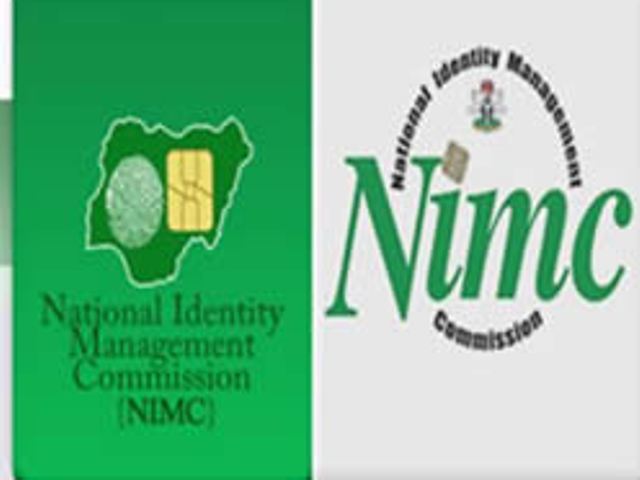Democracy & Governance
The Situation Of The National Identity Management Commission (NIMC) In Nigeria Today -By Abdulfatah Habeeb
Identity is perhaps the most important aspect in any country’s socio-political life. It is important in budget, security and also in planning for every nation, with the advent of a good identity system it will help in fighting corruption, terrorism and also enable a dependable system of governance.

The National identity management is among the biggest problems in Nigeria. It is one of the factors hindering Nigeria’s socio-economic growth and development not only on technological grounds. For decades Nigeria has struggled to develop a practical approach to register and manage the identity of citizens. Since its inception in 2007 pursuant to the Nigerian Identity Management Commission (NIMC) act it has been saddled with the task to own, operate, maintain, and manage the national identity database in Nigeria and register people covered by the act and issue general multi-purpose cards. An effective national identity management system is crucial to the development of any nation.
It provides a universal identification infrastructure for a country which enables access and create means to confirming the identity of individuals residing in a country. Identity is perhaps the most important aspect in any country’s socio-political life. It is important in budget, security and also in planning for every nation, with the advent of a good identity system it will help in fighting corruption, terrorism and also enable a dependable system of governance. Proper economic planning, intelligence gathering and a functioning security architecture will be difficult to achieve in the absence of a developed national identity system.
Over decades, Nigeria has struggled to develop a reasonable approach to register and manage the identity of its citizens. This issue makes it difficult to address crime and provide meaningful services to Nigerians. Former president Goodluck Jonathan launched the NIMC project to create a National Identity Database by assigning a unique National Identification Number (NIN) and issue General Multi-Purpose Cards (GMPC) to Nigerian citizens. After the launch, many Nigerians Crowded NIMC enrolment centers to acquire the cards and get their NIN.
However, the lack of resources to handle the large numbers flooding the centers became apparent. Largely left unattended and sometimes asked to pay sums of money by corrupt officials. Nigerian citizens soon became frustrated and began to show less interest for the system.
As at late 2017, the number of registered Nigerians rose to about 24 million but the registration process was still slow. Presently today about 41.5 million Nigerians have NIN, with millions more waiting to be registered. And a large number of people have not been issued their card after years of registration.
However last year, a statement by the NIMC Head of Corporate Communications indicated that only about one million national e-ID Cards have been printed while over 400,000 have been issued to their owners across the country which are mostly influential individuals. With over 30 million people registered, those figures are just too small. According to the law it states that the first issuance of the card should be free, the economic situation makes it impossible for the commission to issue 36 million cards free. About two million cards are being printed and that the commission was working on a roadmap that will allow it to involve the private sector to produce the cards. By and large there are some Problems faced by the system which may be as a result of the followings:-
Inadequate enrollment centers; The National Identity Management Commission (NIMC) presently has about 1,000 enrollment centers across the country, this is very small compared to the population size of 200 million people which the commission is supposed to provide service to. An official while speaking to punch newspaper said that every 50,000 people will need a center. So with a population of 200 million, Nigeria will need at least 4,000 centers. The director general says the commission plans to have at least 10,000 enrolment centers. However, the commission could also look at conducting outreaches to meet the unregistered people in their communities.
Corruption; This has eaten deep into the fabric of every sector of the Nigerian economy. The effects of corruption in Nigeria cannot be overemphasized. It is also said that the corrupt officials use the rush for NIN as opportunities to extort unsuspecting Nigerians.
Lack of will-power by the government; The Government has not shown enough commitment towards the achievement of the commissions goal. The matter has not been taken serious by the government and adequate resources has not been put in place to help the situation.
Under funding; With the current economic situation in the country, the commission appears to be lacking funds. The commission is said to need about N132 billion to capture everybody in the country within the next 3 to 5 years. It can be noted that the Director General of the commission stated in an interview that the commission does not lack human resources, but is only short of equipment and the financial strength for logistics needed to meet its goals.
Lack of collaboration among government agencies ; The NIMC aims to work with other government agencies and private sectors that collect data who will sort the data and send to the NIMC. The commission will pay such organizations if they carry out the mission successfully. They believe that the scheme will help it to attain its goal in 2025. According to the NIMC director-general, the commission had began tactical partnerships with National Orientation Agency (NOA) and Nigerian Television Authority (NTA) to enlighten Nigerians on the importance of identity registration. However, the more important partnership will be with agencies like INEC, Nigeria Inter-Bank Settlement System (NIBBS), NPC, INEC, FRSC, NCC, and National Passport Office.
As already indicated above the importance of identity management is hugely dependent on the synchronization and addition of the different government agencies from the telecom regulator, to the population commission and to the electoral commission and so on as well as other database collating bodies like the banks, educational institutions, and health facilities who all collect and store biometric data working together with the NIMC to help it achieve its goal.
Albeit, l will like to urge the government and private sectors to try and provide the commission with the required form of assistance. However, the citizens should also be sure of the information they give out when doing the registration so that it will not affect them later.
Abdulfatah Habeeb is a student of Ahmadu bello university, Zaria. He is an opinion writer and he can be reached via: habeebabdulfatahh@gmail.com or 08147288584.



















